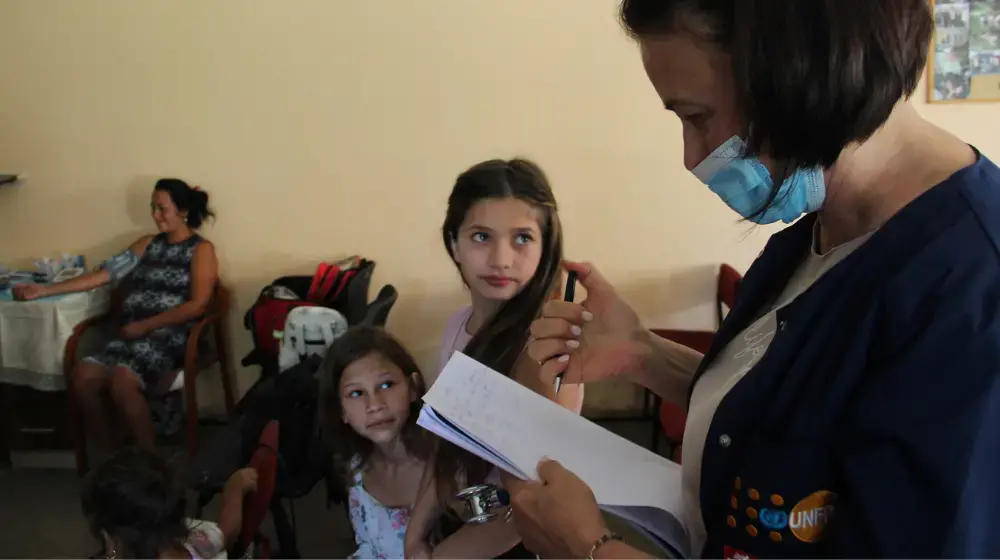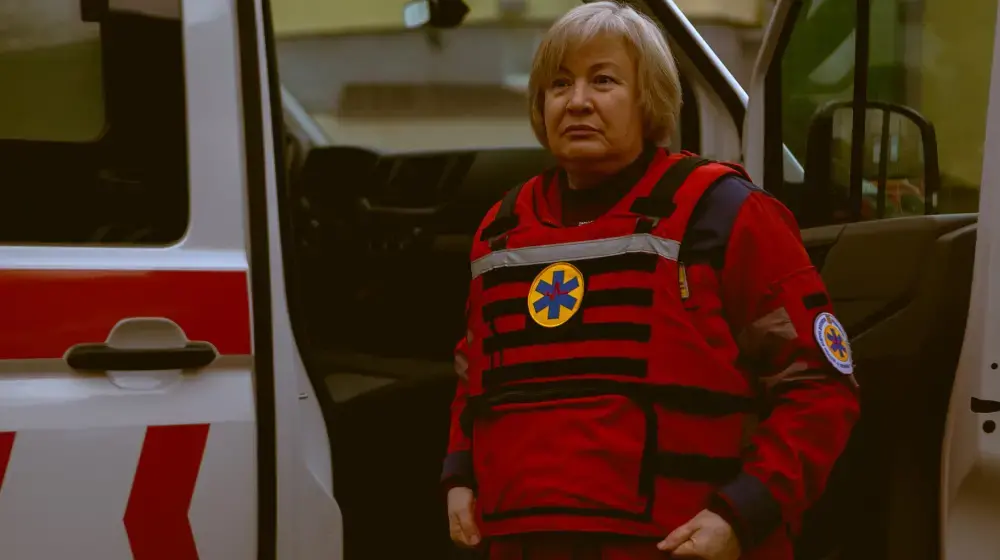GENEVA (8 September 2015) – Close to 8,000 people have lost their lives in eastern Ukraine since mid-April 2014, UN Human Rights Chief Zeid Ra’ad Al Hussein said Tuesday as he released the 11th report by the UN Human Rights Monitoring Mission in Ukraine.
“The shelling of residential areas on both sides of the contact line has led to a disturbing increase in the number of civilian casualties over the past three months. More needs to be done to protect civilians and put a complete stop to the hostilities, in accordance with the February ceasefire agreement,” Zeid said.
The report, which covers the period from 16 May to 15 August 2015, notes that the number of civilian casualties more than doubled by comparison with the previous three months, with at least 105 people killed and 308 injured compared to 60 killed and 102 injured between 16 February and 15 May.
Since the conflict began in eastern Ukraine in mid-April 2014, a total of at least 7,962 people (including Ukrainian armed forces, civilians and members of the armed groups) have been killed, and at least 17,811 injured, the High Commissioner said, citing the latest figures available.*
“The withdrawal of heavy weapons from the contact line as foreseen in the Minsk Agreements remained partial with the armed groups and the Ukrainian military using mortars, canons, howitzers, tanks and multiple launch rocket systems in daily clashes and exchanges of fire along the contact line,” the report states, noting that during the reporting period the majority of civilian casualties caused by shelling occurred within the territories controlled by the armed groups.
“The situation in Ukraine continued to be marred by ongoing armed hostilities in some areas of Donetsk and Luhansk regions reportedly fuelled by the presence and continuing influx of foreign fighters and sophisticated weapons and ammunition from the Russian Federation,” the report says, adding “It is also of concern that the Russian Federation has continued to send white-truck convoys without the full consent or inspection of Ukraine, and their exact destination and content could not be verified.”
The development of more centralized civilian administrative structures and procedures in the self-proclaimed ‘Donetsk people’s republic’ and ‘Luhansk people’s republic’ continued during the reporting period, although they do not conform with either international law or the national legislation of Ukraine.
Civilians living in the conflict-affected area, particularly near the contact line, bear the brunt of the armed conflict, facing uncertainty and hardship on a daily basis. Their overall situation is worsening, including in terms of access to food and water, and is of particular concern with winter approaching.
The UN report also states that despite the creation of a web-portal for applying and receiving permits online, the Temporary Order issued by the Ukrainian Government continues to severely restrict the freedom of movement. Because of the long queues at check points, people are forced to stay in areas where they are at risk of shelling for extended periods, or to seek alternative routes which may not be clear of mines and unexploded ordinance.
The report also documents cases of killings, abductions, torture and ill-treatment, sexual violence, forced labour, ransom demands and extortion in the territories controlled by the self-proclaimed ‘Donetsk people’s republic’ and ‘Luhansk people’s republic.’
“An estimated three million people continue to reside in the territories under control of the ‘Donetsk people’s republic’ and ‘Luhansk people’s republic’ without protection from the human rights violations and abuses of the armed groups and their supporters,” the report states.
The report also notes a “persistent pattern of arbitrary and incommunicado detention by the Ukrainian law enforcement (mainly by the Security Service of Ukraine) and by military and paramilitary units.” These cases are often accompanied by torture and ill-treatment of detainees, and violations of their procedural rights. The UN Human Rights Office continues to advocate for proper and prompt investigation of every reported case, and for prosecution of perpetrators.
The new UN report also notes that human rights violations continue to be committed by the de facto authorities in the Autonomous Republic of Crimea**. “Former Maidan activists resident in Crimea continued to be under scrutiny of the ‘investigative’ bodies. Dissenting voices continued to be effectively silenced and denied any public space, especially as regards to those Crimean Tatars organizations which the de facto authorities consider non-loyal or claim to be extremist.”
“I am particularly concerned at the recent sentencing to 20 years of prison of Ukrainian film-maker Oleh Sentsov by a Russian Federation Military Court,” said High Commissioner Zeid. “His trial was marred by irregularities.” Zeid noted that the court refused to look into credible allegations of torture and ill-treatment during his pre-trial detention and that the verdict was passed despite the main prosecution witness recanting his testimony in the courtroom, insisting that it had been extorted under torture. A Crimean activist, Oleksandr Kolchenko, was also sentenced to 10 years for his alleged participation in the terrorist plot.
ENDS
* Casualty figures have been updated beyond the period covered by the report. This is a conservative estimate and the actual numbers could be considerably higher. The casualty figures are estimated by OHCHR.
** The status of the Autonomous Republic of Crimea is prescribed by General Assembly resolution 68/262.
To read the full report, please visit: http://bit.ly/1UALmOo




